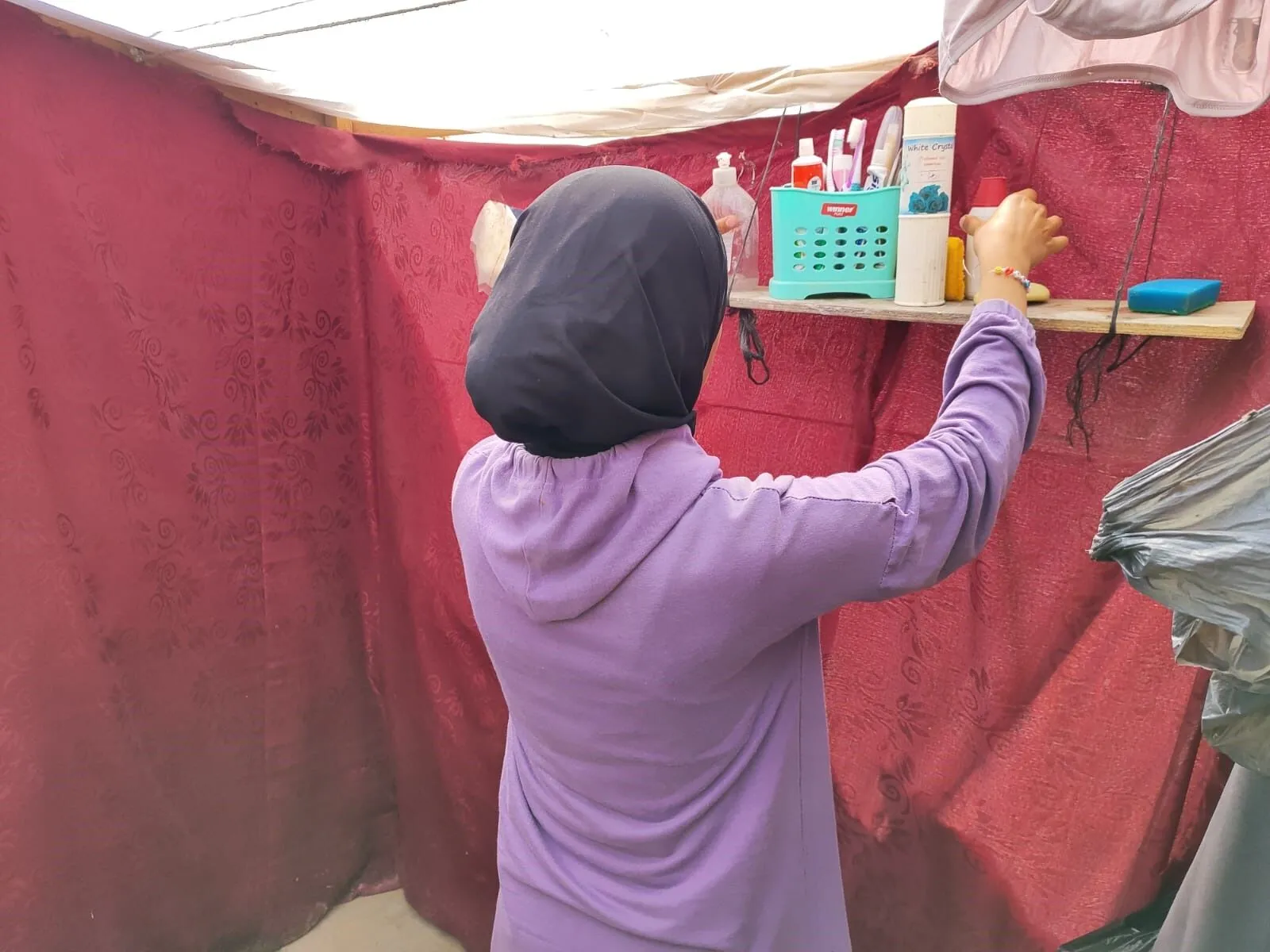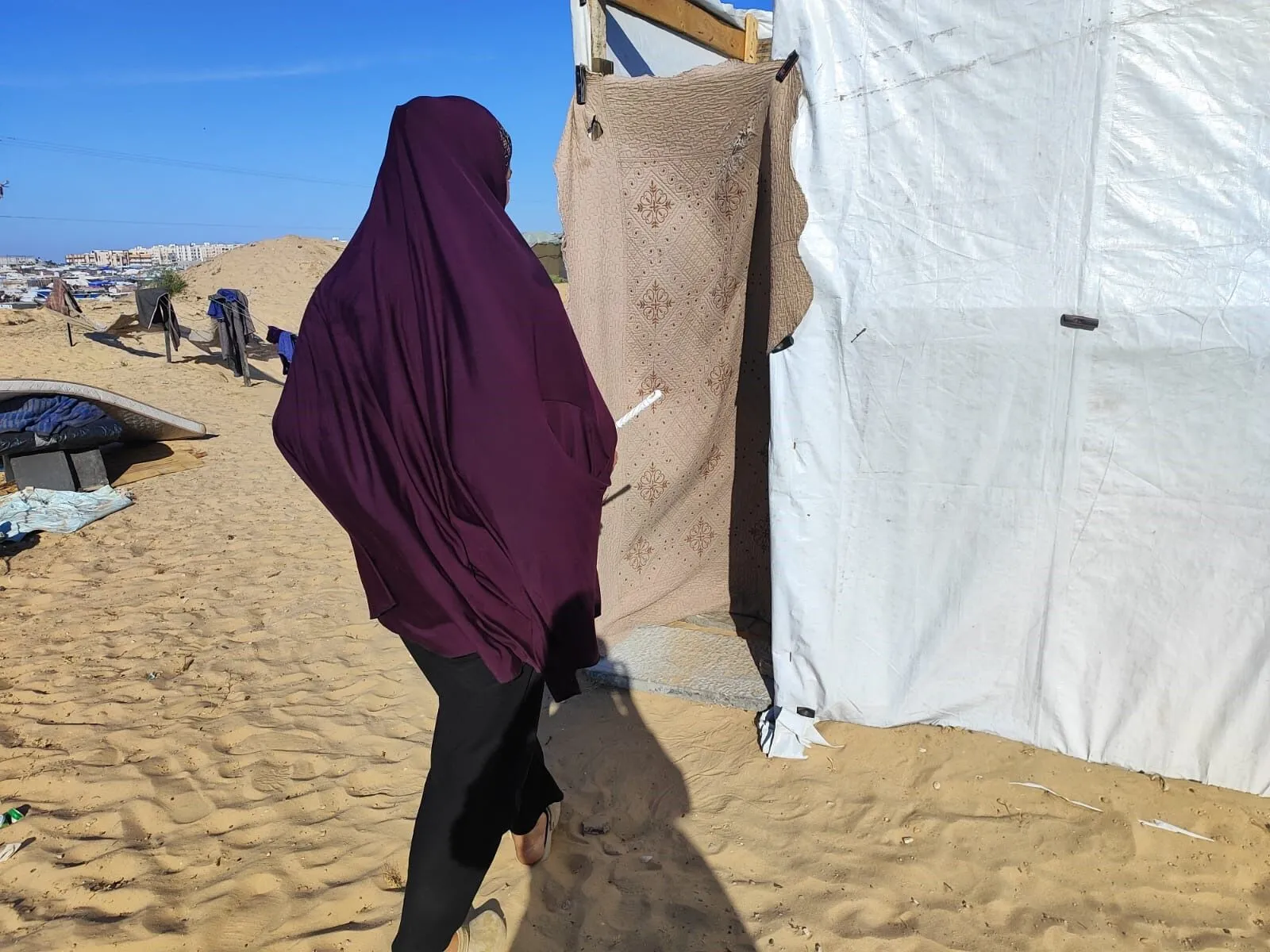“Sometimes it feels like our entire day revolves around finding food and water, using the toilet, and trying to wash ourselves. Since the war escalated, we have had to flee numerous times.
We were displaced from Gaza City to Rafah, and after Rafah was attacked, we had to flee to Khan Younis. We live in a tent in the desert, where the temperatures are now reaching well above 40 degrees [100°F]. It is really unbearable. I have been sick for months. Sick from the bad food and dirty water; sick from all the dust in the air.
Taking care of personal hygiene is a massive issue for us. Toothbrushes, toothpaste, sanitary napkins, shampoo – everything that used to be available and affordable is now almost impossible to get.
How shall we afford toothpaste if we don’t even have money to buy food?
It is especially hard for me when I have my period. We share a bathroom with three families. I only have minutes to use the toilet, because there will always be others in front of the door waiting. I have to be quick; I cannot take the time I need.
I always take my personal items with me to the bathroom in a plastic bag, and I also have my own bin bag because otherwise I am too embarrassed.
We also hardly get any toilet paper, as it is way too expensive and often not available. When I have my period, I wish I was able to properly clean myself.
I have heard from others that they are using old clothes and towels instead of sanitary napkins. I am lucky that my parents are really going out of their way to find sanitary napkins for me to make my life as a young woman a little bit more bearable.
One time, we received humanitarian assistance, and they also distributed hygiene and sanitary napkins. That was so helpful, however these past weeks no aid has reached us at all.
We do not have enough water to wash ourselves properly. Especially now, with the heat and the dust, I wish we could wash ourselves every day.
Now, with all the difficulties we are facing in getting water, we only bathe ourselves once per week, sometimes only once per month. We walk around twenty minutes to the next water well. We usually wait half an hour to fill our buckets, and then we need another half an hour to get back home. I am always afraid when I have to go and get water. There are so many people and always bombardments going on. Large gatherings of people are often being targeted. I try to finish filling the water as quickly as possible and go directly back to our tent.
I really hope the war will end soon so I can go back to school. We used to go camping with my family. I would have never imagined having to permanently live in a tent in the middle of the desert.
I think the situation is especially difficult for women and girls. We are the ones who are often staying in our tents, while the men go out and try to work or find food. Our lives and prospects have been reduced to just trying to stay alive in our tents. Since I was ten years old, I dreamt of becoming a doctor or a nurse. The longer this war continues, the more impossible it feels that I can ever accomplish my goals.”
Sawsan, 30: “My baby has a skin rash because we cannot afford to change her diapers as often as we should.”




